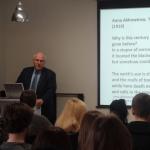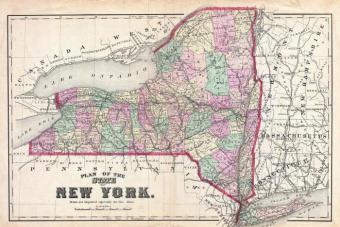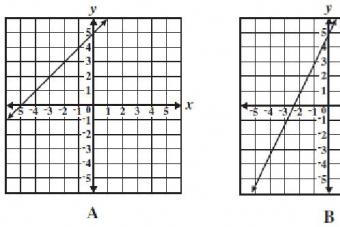The life of a modern person is filled with various stresses - rush jobs at the workplace, misunderstandings when communicating with other people, family problems. This is quite common. However, not for everyone, frequent psychoemotional stress passes without a trace. Many people say that they have a headache from the nerves. Consider why this happens and how to protect yourself from discomfort.
Why does the head hurt in a nervous environment?
Nervous headaches usually occur in people who are engaged in intellectual work. This is due to the fact that the load on the central nervous system is greatly increased. With prolonged nervous tension, the cerebral cortex begins to wear out. In such circumstances, interruptions in the work of all internal organs occur. The disorder in the functioning of the cardiovascular system especially negatively affects the state of health - the heart rate increases, there are sharp drops in blood pressure. Therefore, after the nerves, the head hurts.
How does the pathological condition develop?
Severe stress triggers the mechanism of headache development from nervous tension. For example, a quarrel with a loved one, dismissal, passing an exam. It is worth noting that the head begins to hurt even after pleasant shocks, for example, on the day of the wedding.
With prolonged stress, nerve cells transmit a signal of interruptions in the coordinated work of internal organs in the central nervous system with the help of long processes - axons. The impulse reaches the target in a matter of moments, therefore, as a response, a nervous headache occurs.
Under what conditions does pain appear
The main factor influencing the development of the condition when the head hurts after the nerves is psycho-emotional shock. However, the likelihood of the manifestation of painful symptoms increases significantly when the following unfavorable conditions are present simultaneously with stressful situations:
- The presence of cardiovascular pathologies. From the nerves, the sick person becomes even worse, because in such conditions, the vessels work in an emergency mode. Therefore, the head hurts from the nerves.
- Intense mental stress. Headache after nervous tension disappears only after proper rest.
- Pinched nerves in the cervical spine. This is in the wrong position. Many are interested in what to do if a nerve in the neck is pinched. To begin with, you should constantly monitor the correct position of the back at the desk. Also, every half hour of work is worth taking breaks.
- Depressive moods. In such conditions, the slightest nuisance knocks a person out of mental balance. This can lead to a headache from the nerves.

Pathological sensations associated with stressful situations
Often a person cannot understand that his head ached precisely from the nerves. This is due to the fact that many are skeptical about the deterioration of well-being on the basis of nervousness. The danger lies in the fact that while the patient is trying to look for the cause in more serious diseases, the condition only gets worse, and the head hurts even more from the nerves.
There are several characteristic signs that the headache is from the nerves. For instance:
- memory has deteriorated;
- lethargy, decreased vitality;
- sleep disturbances;
- periodically there is a nervous tic.
The characteristic symptomatology of the sensation of a nervous headache
The above are signs that can only indicate that the head hurts on nerves. The symptoms below are ninety percent likely to indicate nerve headaches:
- Unilateral localization of painful sensations. In advanced cases, unpleasant manifestations cover the entire head.
- The pain is moderate, relatively easily tolerated.
- At the slightest stress, the soreness increases.
- Taking pain pills for headaches is not effective enough.
- The condition worsens in the evening and at night.
Important! It is impossible to independently establish the cause of poor health; professional advice is required.
Diagnostic methods
Due to the fact that the condition when the head hurts from the nerves is quite difficult to identify, the initial questioning of the patient by a medical worker is of great importance. At this stage, you should be as frank as possible with the doctor and tell in detail about your feelings. For example: "after getting nervous, a headache appears" or "at first I got nervous at work, then my health worsened."

In addition to a confidential conversation with a specialist, the patient will be assigned to undergo the following procedures:
- Ultrasound of the heart muscle and blood vessels;
- MRI, CT of the head section;
- blood chemistry;
- radiography.
Additional methods of examination may be required to determine that the head hurts precisely from the nerves, for example, a conversation with a psychologist.
Special conditions when immediate medical attention is required
Sometimes after the nerves, the head hurts so much that a person gets out of the usual rhythm of life. If you cannot get rid of pathological symptoms on your own for more than two days, you must visit a health care institution.
How to determine that the victim needs prompt hospitalization
In addition to the fact that the head hurts from the nerves, there are several additional signs that indicate that a person needs inpatient treatment:
- increased body temperature, chills;
- fear of bright light;
- nauseous feeling, vomiting;
- confusion of consciousness;
- a nervous breakdown ended in fainting.
These symptoms may indicate the presence of more serious diseases that threaten life and health.
How to reduce stress-induced headaches
Let's list a few effective actions that will help when the nerves are making you feel worse:
- Peace. The patient will need to lie down in a dark, quiet room and relax.
- A cup of green tea. The drink will help you calm down and recover.
- If a nerve is pinched, you will need to do a light self-massage of the cervical region.
- Aromatherapy. Inhalation of vapors of the following essential oils helps well: tangerine, rosemary, clove, lavender.
- Deep sleep. After two to three hours of sleeping in a relaxed environment, you will feel better.

Therapeutic procedures for nerve-related headaches
After the patient is diagnosed, the doctor will select the appropriate treatment for a headache from the nerves. Consider the most effective ways to eliminate pathological symptoms.
Medication treatment
There is no universal cure for nerves and stress. Depending on the individual characteristics of the course of the disease, the patient is prescribed:
- Psychotropic drugs - Melipramine, Reboxetine, Pirlindol, Imipramine.
- Sedatives - Persen, Neurokhel, Nervoflux, Dormiplant.
- Analgesics - Askofen, Anopyrin, Phenacetin, Metindol.
Important! Any medication can be taken only with the appointment of a doctor.
Exercise therapy
Stress can be more than just psychological. Lack of physical activity or lack of it is also a stressful load for the body. Therefore, daily exercise will help stabilize the psycho-emotional background and improve well-being.
Gymnastics for the face
The following movements performed with the help of facial muscles will help reduce pain from the nerves:
- slow raising and lowering of the eyebrows for five minutes;
- imitation of a cry, for this you will need to open your mouth wide and freeze in this position for a few seconds;
- alternate extension of the chin forward and return to the normal position.
Exercises must be performed in a complex daily.
Neck gymnastics
Neck exercises will help relieve pain after nervous stress:
- tilting the head to the chest, as far as possible;
- head rotation first clockwise, then counterclockwise;
- smooth rotation of the head to the right and left.
All movements must be repeated at least ten times.
Folk remedies
We list the most effective folk remedies when a headache from nerves:
- herbal medicine, herbal decoctions, infusions, tinctures help well;
- compresses, depending on the diagnosis, warm, cold compresses are used, as well as from natural ingredients such as lilac or cabbage;
- relaxing salt baths;
- juice therapy, cabbage, beetroot, tomato, potato juices are most suitable.
Preventive actions
In order not to face the condition when the head hurts from the nerves, the following preventive recommendations must be observed:
- Do not perform unbearable loads, rest more and relax.
- Refuse from drinking alcoholic beverages and smoking.
- Take a relaxing massage course every six months.
- Increase the duration of night sleep to eight hours.
- Eat easily digestible natural products, drink at least two liters of clean water a day.
- Walking every day, lasting from forty minutes to an hour.
Navigation
In the human body, a wide variety of malfunctions can occur on the basis of nerves. With prolonged exposure to a negative factor, they can even lead to persistent systemic disorders. First of all, the most sensitive organ - the brain - reacts to stress. According to statistics, in different countries, the prevalence ranges from 25 to 85%, depending on the characteristics of living conditions and mentality. Studies have shown that every person, without exception, has a headache at least once in his life because of the nerves. Help with this condition must be timely and correct. Simple prevention will allow you not to face unpleasant manifestations or forget about them forever.
Can a head hurt from nerves?
Treatment
The stress must be complex. The list of drugs and other measures is selected by the doctor based on the characteristics of the case, the general condition of the patient, and the causes of the problem. It is strictly forbidden to try to stop discomfort by taking painkillers in response to the appearance of discomfort. This can provoke the development of the abusal syndrome, which is very difficult to get rid of.

Emerging from stress:
- analgesics - "Pentalgin", "Analgin" - act directly on the nerve endings, relieving painful sensations;
- antispasmodics - "No-Shpa", "Spazmalgon" - eliminate vasospasm, expand their lumen, normalize blood flow and eliminate manifestations of hypoxia;
- antidepressants - "Finlepsin", "Amitriptin" - fight depression and other manifestations of stress;
- sedatives - preparations of natural and chemical origin that relax the nervous system.
The timing of drug therapy is set by a doctor and can range from 2 weeks to 2-3 months. Do not give up taking your prescribed medications when you see the first signs of improvement. If the treatment is not completed, the problem will return soon. To enhance the effect of the events, changes should be made in the usual rhythm of life.
Avoiding caffeine, alcohol, proper rest and moderate exercise will speed up your recovery. Additionally, it is worth considering options for conducting alternative therapy.
Voltages:
- coniferous relaxation - add 2 tablespoons of pine extract and half a glass of sea salt to a bath with warm water. The duration of the procedure is 10 minutes. The manipulation is recommended to be carried out daily for a week before bedtime;
- lemon balm tincture - steamed a teaspoon of the herb with a glass of boiling water and insist in a thermos or under a lid for an hour. Strain the composition and take 2 tablespoons up to 6 times a day until the liquid runs out.
All steps to be taken should be coordinated with your doctor in advance. These approaches work well together, but if the treatment is abused, there is a risk of creating an excessive load on the body.
Preventive actions
Preventing stress headaches is easier than getting rid of them later. To do this, it is enough to draw up the correct schedule of work and rest, reduce the load on the brain and eyes, and strengthen the immune system. Constant adherence to simple rules will not only reduce the risks of cephalalgia, but will also have a general beneficial effect on the body.

Prevention of tension and stress headaches:
- full night sleep for at least 8 hours, refusal of daytime sleep;
- exclusion from the diet of drinks with caffeine, energy drinks, products with chemical additives;
- quitting smoking and alcohol abuse;
- systematic sports activities;
- introduction of regular breaks into the work schedule, during which it is recommended to slightly stretch the limbs and cervical spine;
- establishing relationships in the family and the environment, preventing the occurrence of stressful situations and rush jobs.
People who are employed in responsible positions, or, due to the specifics of the work, are forced to conduct intense mental activity, should choose relaxation options for themselves. Favorite hobbies, yoga, meditation, reflexology, visiting the spa are approaches that will quickly remove the accumulated stress without negative consequences.
With a headache arising from nerves, no organic disturbances occur in the human body. Despite this, the condition is accompanied by the launch of pathological processes that can have a serious negative impact on human health. If you ignore the condition, there is a risk of developing depression or reducing the functionality of the brain due to the formation of ischemic areas in the tissues of the organ.
There is hardly one person in the world who has never had a headache in his life. Sometimes the pain is frequent and prolonged, but usually people are faced with the fact that the head hurts "from overwork", from time to time. And then the doctors diagnose tension headache.
What kind of voltage are we talking about? And why do some people have headaches more often than others? Let's try to figure it out.
Tension headache is the most common form of headache, experts say. According to statistics, it accounts for more than 80% of all headache cases. In Europe, 78% of women and 64% of men encounter it at least once a year. The rest of the headaches are relatively rare.
The good news is that while tension headaches are common, the pain itself is usually relatively mild. To put it bluntly, the head does not "feel painful," but rather "aches." However, usually this is enough to seriously ruin a person's life. For example, Danish doctors have found that 12% of those suffering from tension headaches completely lose their ability to work during an attack. Well, if such pain becomes chronic, it is very difficult for a person to live.
Woe from Wit
Doctors began to deal with tension headaches only in the second half of the 19th century, before that it was believed that there were more serious illnesses. To begin with, scientists described the symptoms of the disease: monotonous, dull, pressing pain that does not have a clear localization, does not increase with physical exertion and is not accompanied by nausea. It was not yet possible to find out the cause of the pain at that time, however, in the medical articles of the 19th century it was noted that headaches of this type usually occur in people of mental labor and persons prone to "a mild form of hysteria." It turned out that my head ached from nervous and mental strain.
It was proposed to treat headaches in the spirit of that time: a combination of gymnastics, ice baths and taking an opium tincture. Now the latter method of treatment seems wild, but then many doctors believed in the healing power of narcotic drugs, for example, almost every pharmacy sold drugs containing coca extract as a remedy for asthma.
Significant progress in the study of the causes of tension headaches happened in the 60s of the XX century. Then scientists suggested that prolonged tension of the muscles of the head and neck leads to narrowing of the arterial vessels and spasm of the capillaries that supply the muscles. As a result, the muscles are insufficiently supplied with blood, become lethargic and edematous due to the accumulation of metabolic products. At some point, all of these factors lead to headaches. It turned out that problems arise not because of intense mental work, but because of what accompanies it: a static posture during writing, a constantly tense neck, a head bowed over a work table ...
Are all diseases from the nerves?
The latest research has shown that it is not only about muscles, but also about the work of the central nervous system. It is known that each person has his own threshold of pain sensitivity: to one person, a light prick with a pin seems very painful, while another may not even notice it. The antinociceptive system, which consists of the hypothalamus, as well as structures of the midbrain and medulla oblongata, which direct fibers to the nociceptive neurons of the spinal cord and control their activity, is involved in the suppression of pain sensitivity in the human body. The better this system works, the less pain a person feels.
Unfortunately, sometimes the antinociceptive system starts to malfunction. As a rule, this is associated with emotional stress and overly stressful mental work. For example, in an exam preparation situation, the student's nervous system can become overwhelmed, which leads to the fact that the internal protection against pain begins to weaken. The same nerve impulses that come from the tension of the muscles of the neck and head, in a normal state, would not give painful sensations, since they would be blocked by the antinociceptive system. But when, due to overload, it works worse, a person begins to feel that he has a headache.
How to break a vicious circle
It would seem that everything is clear: you need to lead a healthy lifestyle, walk more often, get enough sleep, not overload yourself with work. But there are two problems. First, in modern living conditions, it is quite difficult to avoid stress and overload. Secondly, having appeared several times, a tension headache begins to literally entangle a person with a cobweb.
When a person has a headache, his mood deteriorates, he becomes less active, more lethargic. Regular pain limits his professional and personal capabilities, disrupts his life plans, which, in turn, leads to additional stress and depression. A vicious circle is formed, which leads to the fact that the tension headache becomes chronic ...
In order not to let the pain ruin your life, you must definitely fight it. It is clear that all recommendations regarding a healthy lifestyle are always relevant. The psychological attitude of a person is no less important: you need to be cheerful, confident and optimistic. And of course, if pain occurs, you need to not endure it, gritting your teeth, but immediately take action.
In this situation, the speed of the drug is of great importance. One of the most effective drugs for headache is a new generation of analgesic "Nalgezin". The main active ingredient of the drug, naproxen sodium, begins to act within 15 minutes after taking the pill. An additional plus of this drug is a long period of action (8-12 hours), so by taking just one pill in the morning, you can be sure that the pain will not spoil your plans until the evening. At the same time, "Nalgezin" will help both from headache and from other types of pain: menstrual, dental, muscle, back pain and joint pain.
We invite you to participate in the "Fast Solution" competition on the website http://nalgesin.ru/. Share your own quick solutions for migraine without the help of medical devices, vote for the decisions of other participants and receive a prize from Krka - a mobile phone that allows you to quickly find solutions in the modern world.
Also on the site you will find a lot of useful information on how to overcome various types of pain, a calendar of painful days tied to the weather, as well as an e-consultant that allows you to carry out a preliminary diagnosis of your ailment.
All information on the site is provided for informational purposes only. Always consult your doctor before applying any recommendations. Self-medication can be hazardous to your health.
If a person has a headache from nerves, then there are many stressful situations in his life. Nervous migraine occurs due to constant overstrain of the body. This is due to a negative effect on the central nervous system. Severe attacks of pain occur due to damage to the vessels located in the skull. An emotional outburst can influence this process.
With the development of a stressful situation, pain receptors begin to work actively. The nerve cell has an interesting structure and basically contains two processes called dendrite and axon. The first component is responsible for the pain signal and transmits it along the body of the nerve. The axon carries it out to the central nervous system. The nerve processes transmit impulses at a high speed. For this reason, many people experience severe headaches after nervous strain.

When the pain syndrome passes through all cells, the brain will reproduce the information received. It will respond to the request of the nerve endings and trigger the development of migraines.
There are several main types of pain. So, a migraine can be:
- pulsating;
- squeezing;
- bursting;
- tense;
- concentrated on both sides.
These headache attacks can occur not only due to nervous overstrain.
During the development of pain syndrome, it is advisable to go to the hospital. Especially if a migraine occurs after every stressful situation. You cannot endure the pain, but taking large amounts of pain relievers is also not safe.
Before making a diagnosis, the doctor carefully examines the patient. It is necessary to collect a complete history of the person, including the nature of the pain and the type of activity of the victim. It is impossible to identify the root cause of migraine without additional diagnostic studies.
The first step is to measure a person's blood pressure and examine the fundus. These activities will assess the condition of the optic nerve. Echoencephalography is an auxiliary method. This diagnostic method involves the study of supratentorial processes. Based on its results, all deviations are excluded and areas in which pathology is recorded are identified. Craniographic examination and examination of cerebrospinal fluid are also carried out. 
When it is revealed why the head began to hurt, they resort to traditional methods of treatment. Drug therapy will help to eliminate the unpleasant symptom. In most cases, it is based on taking painkillers and antidepressants.
However, it all depends on the nature of the pain syndrome and the reasons for its development. The following drugs will help eliminate pain:
- Analgin;
- Pentalgin;
- Ibuprofen;
- Nurofen.
If a person is constantly in nervous tension, it is advisable to use Relanium. It inhibits nervous reactions and relieves the general condition of the victim. Amitriptyline is used along with headache to eliminate signs of depression.
A symptom associated with nervous overexcitation leads to the development of reflex spasm of blood vessels. To eliminate it, it is advisable to use Papaverine or No-shpa.
If a person suffers from constant headache attacks due to nervous tension, the independent use of pain relievers can aggravate the situation. The treatment regimen is prescribed by a doctor, the duration of therapy is 2-3 months.
Preventive measures
On the net, a frequent request is this: when I am nervous, I have a headache. This state is the scourge of our time. Continuous exercise will help prevent its development. Regular moderate physical activity strengthens the body and increases endurance. Physical education should be complemented by walks in the fresh air. The body must be enriched with oxygen, especially if a person's work is associated with the monotonous performance of any actions in a closed room.
Normalizing wakefulness and sleep patterns will help solve the problem. A person needs more rest. Choose your favorite activity as relaxation therapy. Performing activities that bring joy on a regular basis can help reduce the likelihood of a stressful situation.
It must be understood that nerve headache is a pathological process. More often this symptom affects people who are unable to control their own emotions. Therefore, the first step is to normalize the emotional state, and then proceed with preventive measures. If this does not give a positive result, you should go to the hospital.
Perhaps, there are no more frequent complaints of patients than complaints of headaches. They are of a different nature and shape. The most common of these is tension headache (HDN) - a third of the entire population suffers from this ailment. In the majority of patients, it occurs at a young age. The onset of the development of the disease after 50 years is rather an exception. Women are affected somewhat more often. According to the international classification of diseases, ICD-10 has the G44.2 code.
Forms of tension headaches
There are two main forms:
- Episodic, which almost always owes its appearance to stressful situations of low intensity. It can literally last a few minutes or torment you for up to several days. The pain is moderate and is relieved by popular drugs. These pains do not have a strong effect on the quality of life.
- The chronic form is constant pain that appears daily, usually bilateral, which is localized in the occipital-frontal part and is associated with spasms of the muscles of the neck and head (lasts more than 2 weeks a month and more than 6 months a year). These are monotonous and rather intense pains.
When there are unrecoverable long-term stressful situations, the process becomes chronic.
The clinical picture of these two forms is practically the same, but they differ only in their duration.
Signs of HDN
Patients "reward" these pains with a variety of epithets: squeezing and squeezing, constricting and monotonous, dull and light, moderate and strong. You can often hear such comparisons: "pulled like a hoop", "head in a vice", "like a helmet."
Along with them, weakness and fatigue, irritability and nervousness, and fatigue are present. But this pain is not pulsating and with it there is no nausea or vomiting. Many patients react sharply to bright light and noise, complain of insomnia, lack of appetite and distraction.
For some patients, a headdress or combing of hair gives additional discomfort. The pain excruciates even at night, but physical activity does not increase it. If you feel the muscles in the neck and head, you may feel a lump.
Types of HDN
Muscle tension headache
This type of pain is most common in the working-age population. They also call it psychogenic or idiopathic headache. Of all the types, this type of pain is the most common.
It occurs due to prolonged contraction of the muscles of the neck, face and skull. Accordingly, the volume of blood flow in the vessels decreases, from which the muscle tissues experience oxygen starvation. This builds up toxins and causes pain. Tense muscles are irritated, a signal is transmitted to the brain - this is the mechanism of headache.
The main symptoms of tension headaches are:
- strong tension of the cervical, facial and shoulder muscles.
- dull pain from occiput to forehead. Her character is never pulsating.
- a powerful tension is felt in the temples and in the forehead.
The onset of such pain in old age is atypical.
Nervous tension headaches
 Very often there are pronounced headaches with nervous tension. In fact, a person cannot relax. Nervous overloads and conflict situations "trigger" pain.
Very often there are pronounced headaches with nervous tension. In fact, a person cannot relax. Nervous overloads and conflict situations "trigger" pain.
They are characterized by cessation or weakening when distracted from those factors that traumatized the human soul. For example, this happens when you have a pleasant rest with friends or a trip to nature, watching a light, relaxing movie.
During examinations, lesions of the nervous system are not detected, and absolutely nothing threatens the patient's life. However, the quality of life from such pain is greatly reduced and the patient needs medical attention.
Note that happy people are much less likely to have such pathologies. Therefore, in cases of muscle and nervous strain, you need to be able to relax.
This can be done in various ways:
- do yoga and auto-training;
- undergo psychotherapy sessions;
- stand under hot shower water or take a bath with medicinal herbs;
- make a relaxing neck massage;
- physiotherapy;
- physiotherapy.
GBN in case of physical overload
Often, such pains appear during physical exertion. This is almost always associated with the performance of a person's professional duties: driving a car for a long time or working at a computer, eye strain from seamstresses, watchmakers and jewelers, collectors of small electronics parts, etc.
Such workers should take more frequent breaks, change posture, self-massage problem areas and exercise.
Tension headaches in children
The younger generation suffers from this ailment at least as often as adults. Its symptoms are the same: compressive pain on both sides, children become irritable, get tired quickly. Often they are accompanied by pain in the neck and back, joints and heart, rise or vice versa, drop in blood pressure, heart palpitations and even fainting.
All this is caused by muscle tension for a long time, when the child does not fit a desk or a desk, does not match his height, he is often in an uncomfortable position ("school" headaches). They can also cause physical and mental fatigue, stuffiness in the room, weather disasters, forced starvation.
Causes of the disease
 Many reasons have already been described. To this we can add that the causal factors are:
Many reasons have already been described. To this we can add that the causal factors are:
- affective states - depression and anxiety;
- muscle stress when a person does not move for a long time (overstrain of the cervical, eye and facial muscles);
- overuse of analgesics or tranquilizers can also cause similar pain;
- respiratory disturbances cause anxiety and as a result -. In an unventilated room, people do not have enough fresh air;
- improper posture, uncomfortable sleep, sudden changes in the weather can provoke a tension headache;
- excessive passion for coffee and alcohol;
- pathology of the cervical ridge.
A vegetative crisis can also provoke headaches, you will find how to stop it correctly by clicking on the link.
Treatment of tension headaches
If such pains often bother you, understand their causes, do not withdraw into yourself and “let go” of stressful situations, ie. reconsider your lifestyle. Of course, the treatment should be prescribed by a doctor, and it should consist of two components: relaxation and pharmacological drugs.
If you get these pains quite often, you need to learn how to ease them. This can be done by massaging the back of the neck and temples, using acupressure and acupuncture.
You can lie in a dark room with a wet napkin over your eyes, or take a relaxing shower. Hypnosis and aerobics, walking and swimming are helpful.
How to treat chronic tension headache is decided only by the attending physician who is familiar with the course of the disease.
Drug therapy
For very intense and acute attacks, nonsteroidal anti-inflammatory drugs are prescribed (Naproxen, Ibuprofen, Ketoprofen, drugs with caffeine and phenobarbital, sometimes tranquilizers).
But we must not forget that by using painkillers for too long, you can get the opposite effect - an abusal headache (i.e., these drugs themselves cause it), therefore, with the use of drugs in the treatment of tension headaches, you need to be very careful.
Treatment of HDN with traditional medicine
- You can massage the pain points with lemon oil (for a couple of minutes each) or apply cold to the back of your head. Very often, massage itself helps to cope with headaches caused by tension.
- An infusion of thyme herb has a wonderful effect on the work of the blood vessels of the brain and strengthens the nerves (add 5 g of herb to half a liter of boiling water, leave for half an hour). Take a week three times a day, then two weeks off.
- Such an exercise perfectly helps in the treatment of HDN (by the way, the sagging belly is also tightened): breathing with the stomach - it is inflated on inhalation, and on exhalation it is pulled in. The exhalation lasts twice as long as the inhalation. Continue the procedure for 15 minutes.
- Hold a leaf of golden mustache in the refrigerator, then knead and apply to the temples for a few minutes. Can be alternated with beet gruel.
There are good reviews about the treatment of tension headaches, the following method is used: with your hands you need to press on the back of the neck to feel the tension of the shoulders, then rest and repeat this several times. Thus, the muscles and nearby nerve endings are relaxed.
But you should not get carried away, you need to remember that only a specialist can decide how to properly relieve an attack of HDN.
Prevention of tension pain
 You can prevent them with the following methods:
You can prevent them with the following methods:
- choose the optimal mode of work and rest;
- constantly engage in physiotherapy exercises;
- psychotherapy and physiotherapy procedures;
- water procedures and manual therapy;
- health improvement at resorts;
- indispensable fulfillment of the doctor's prescriptions.
Medicines include muscle relaxants and antidepressants that only your doctor can pick up.
In conclusion, I would like to wish you more positive emotions: when they prevail over negative, headaches become much less. The protective mechanisms of the brain are at work.
This is a full sleep, a good mood, the absence of resentment and anger in the soul, a state of love and faith in goodness. Take life lightly and naturally, and then there will be much less emotional breakdowns and headaches.
The video discusses the problem of tension headaches:





